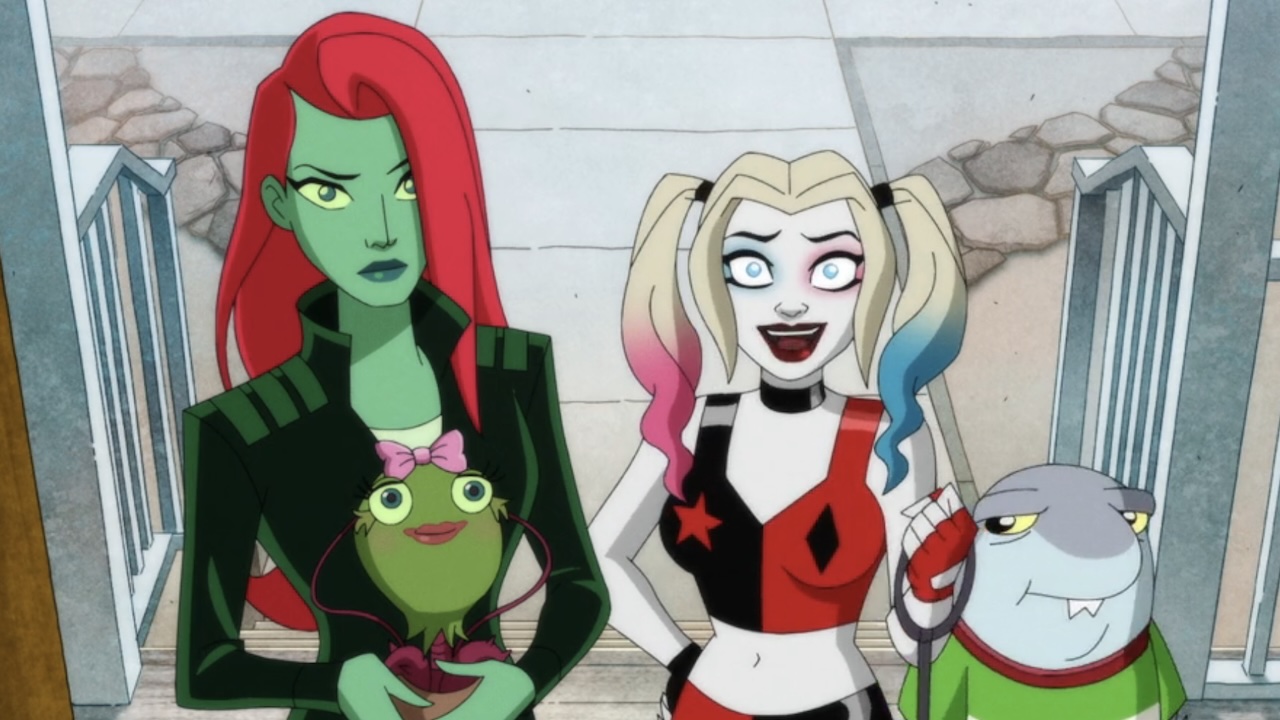The Trial Of The Chicago 7 Ending Explained: What Happens, And How It Compares To Real Events
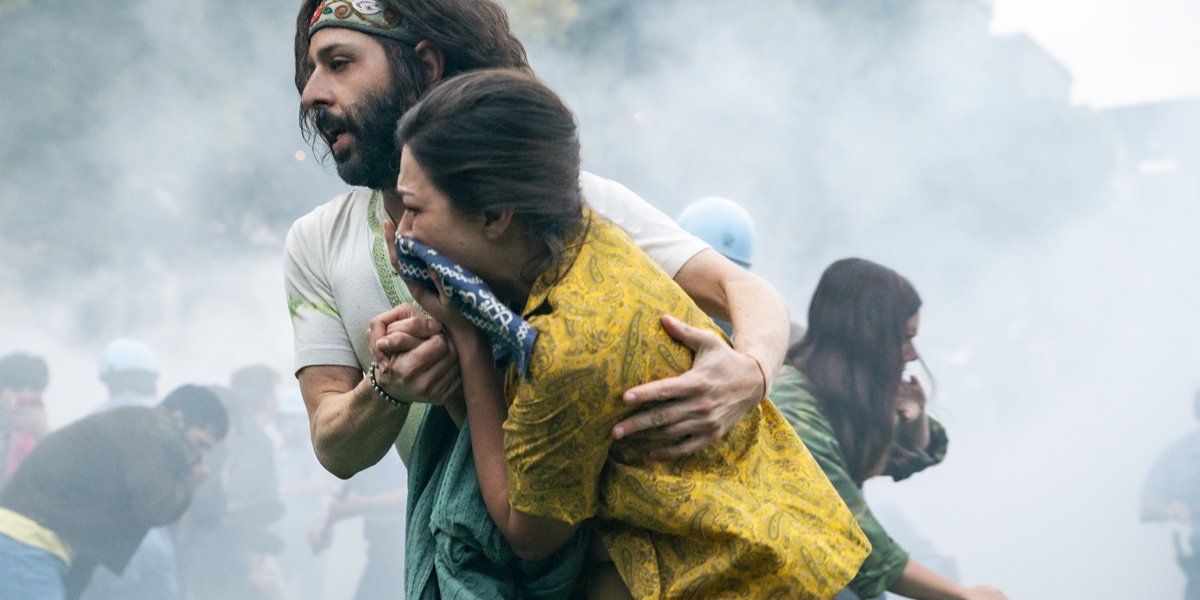
Your Daily Blend of Entertainment News
You are now subscribed
Your newsletter sign-up was successful
Nobody does political drama quite like Aaron Sorkin, and this fall he has delivered another fantastic and fascinating depiction of our government and legal system with Netflix’s The Trial Of The Chicago 7. As you can likely draw from the title, the film centers on the court battle waged against the eponymous group of anti-war activists protesting the Vietnam War during the 1968 Democratic National Convention, and it not only provides brilliant star-studded drama, but also a fascinating lens to look through at our modern world.
You might know some of the history behind the Trial Of The Chicago 7, but if you’re shaky on the details, this feature will explore not only how the Aaron Sorkin film wraps everything up, but also how it sits side by side with reality. To start, let’s do a bit of recap.
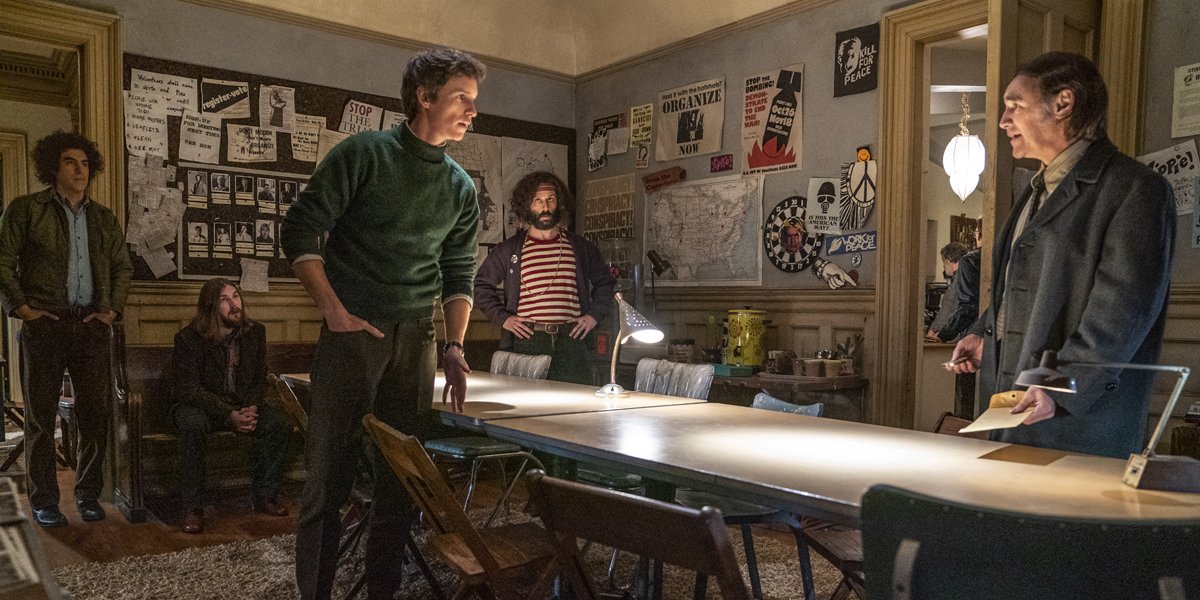
What Happens At The End Of The Trial Of The Chicago 7
Following the dismissal of the damning testimony from former Attorney General Ramsey Clark (Michael Keaton), the state of things seems dire for the defense of the Chicago 7 – and it doesn’t take long for things to go from bad to worse. After learning that their would-be star witness would not be allowed to take the stand in front of the jury, attorney William Kunstler (Mark Rylance) reveals that the prosecutors possess a tape featuring a recording that Kunstler describes as “the sound of [Eddie Redmayne’s Tom Hayden] starting the Chicago riots.”
This is a terrible blow given that Tom was selected as the only defendant in the group who would not plead the fifth and testify in court. Rather than wilt away from the newly introduced evidence, the Port Huron Statement co-author insists that he is willing to stand up against the prosecution and the interrogation from Richard Schultz (Joseph Gordon-Levitt). Kunstler decides to put this thought to the test by playing out what his experience in the witness box being cross-examined would be like, pressing him on the events that transpired on the night of August 28, 1968 and the words he shouted while on stage in front of a park full of fellow protestors.
As Hayden and Kunstler duel, The Trial Of The Chicago 7 brings the events being described to life – beginning with a group of police officers assaulting a young member of the crowd who attempts to get a better look at the stage by climbing a flagpole. When Tom’s friend/fellow defendant Rennie Davis (Alex Sharp) attempts to deescalate the situation, one of the cops beats him on the back of the head with a nightstick. Witnessing this, and ignoring requests from David Dellinger (John Carroll Lynch) for him to calm the crowd, Tom grabs the microphone at the center of the stage and says,
Rennie Davis has just been beaten by the police. Rennie’s skull has been cracked open… If blood is going to flow, let it flow all over the city. If gas is going to be used, let it come down all over Chicago. We’re going to the convention! Let’s get on the streets!
Tom begins to crack under the pressure from his lawyer’s faux questioning as the film shows anti-war activists trying to make their way out of the park and into the streets of Chicago – finding resistance in the form of officers launching tear gas and using batons (the original footage cut together with archive footage from the actual event). Clips of “stand-up” performances by Abbie Hoffman (Sacha Baron Cohen) begin to add to the storytelling as it’s discussed how herded protestors ended up in front of the Conrad Hilton hotel and were ultimately forced by police through the street-level glass windows.
Recognizing the severity of the situation through William Kunstler’s pressing, Tom appears defeated and notes that what he meant was “our” – as in “if our blood is going to flow, let it flow all over the city” (a suggestion that the goal was not violence and agitation, but rather to have the police brutality witnessed by the people of Chicago). He knows that he can’t take the stand, and tells his lawyer that Abbie Hoffman should speak as a witness instead.
Your Daily Blend of Entertainment News
During the trial, Hoffman does just that, and is questioned by both his own lawyer and Richard Schultz. He explains his belief that he is on trial not for starting a riot, but instead for “transporting ideas across state lines,” and in the spirit of a presidential election being seen as a revolutionary overthrow of government, he explains that the anti-war protests during the Democratic National Convention was essentially a voter registration drive. He is asked about Tom Hayden’s statements, which he counters by saying that anything can be manipulated out of context. Finally he is asked if he went to Chicago to start a confrontation with the police, but the scene fades out before his answer is given.
Flashing forward, the 151st day of the trial is the sentencing, and Tom Hayden, Rennie Davis, David Dellinger, Jerry Rubin (Jeremy Strong), and Abbie Hoffman are led into the court one final time. It’s implied that, as predicted, John Froines (Daniel Flaherty) and Lee Weiner (Noah Robbins) were both judged innocent so that the jury would feel less uncomfortable about throwing the book at the main five. Judge Hoffman (Frank Langella) explains that it is the right of the defense to deliver a statement before final judgment is delivered, and Tom is selected for the task.
While he is told that being respectful of the court, remorseful, and brief would earn him and his fellow defendants leniency, Tom chooses to defy the recommendation by reading aloud Rennie’s catalogued list of all the soldiers killed in Vietnam since the beginning of the trial. A furious Hoffman attempts to get him to stop, but the entire gallery stands, applauds and cheers. Richard Schultz also gets to his feet in reverence to the fallen, leading his boss/chief prosecutor Tom Foran (J. C. MacKenzie) to storm out.
In white text over a still frame (the details of which we’ll get into later in this feature), it’s explained what ended up happening with the case following the sentencing and what later happened to the members of the Chicago 7 and Bobby Seale (Yahya Abdul-Mateen II). First, though, let’s take a look at how the events portrayed line up with actual history.
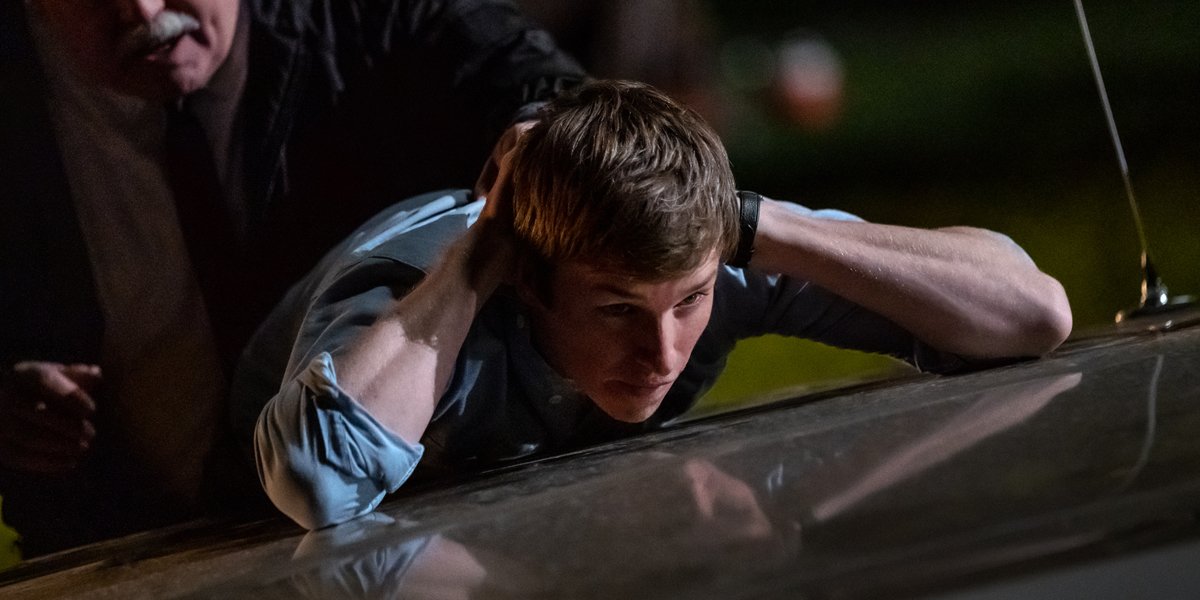
How The Film Compares To The End Of The Trial
Aaron Sorkin is a filmmaker who knows a thing or two about capturing history honestly in his storytelling – though it should also be noted that, to use an old cliché, he doesn’t make documentaries. Certain parts of stories are changed and details are altered for dramatic effect or structural purposes, with the intent always being to portray an entirely emotionally honest version of events that may not be entirely factually accurate. He did it with The Social Network, Moneyball, and Steve Jobs, and he does it again in The Trial Of The Chicago 7.
One standout example of a difference between the film and reality is in regards to the courtroom treatment of defendant Bobby Seale. Believe it or not, as horrible as the events depicted in the movie are, Seale’s treatment was even worse in real life.
In Aaron Sorkin’s version of events, Seale is severed from the case against the Chicago 7 just minutes after being chained to a chair and gagged, but things didn’t play out that quickly in the real case. Seale actually spent multiple days sitting in court in those restraints before William Kunstler's pleas against it were heard. Judge Hoffman also tried to sentence the Black Panther co-founder to four years in prison for contempt of court, but that was overruled on appeal.
All that being said, The Trial Of The Chicago 7 might not be a perfect representation of history, but for the most part it is accurate. Some of the more outlandish details, such as Abbie Hoffman and Jerry Rubin arriving to court in police uniforms cloaked in judges robes, are taken straight from the true story, as is the key portion of the film where former Attorney General Ramsey Clark is forbidden from providing testimony in front of a jury.
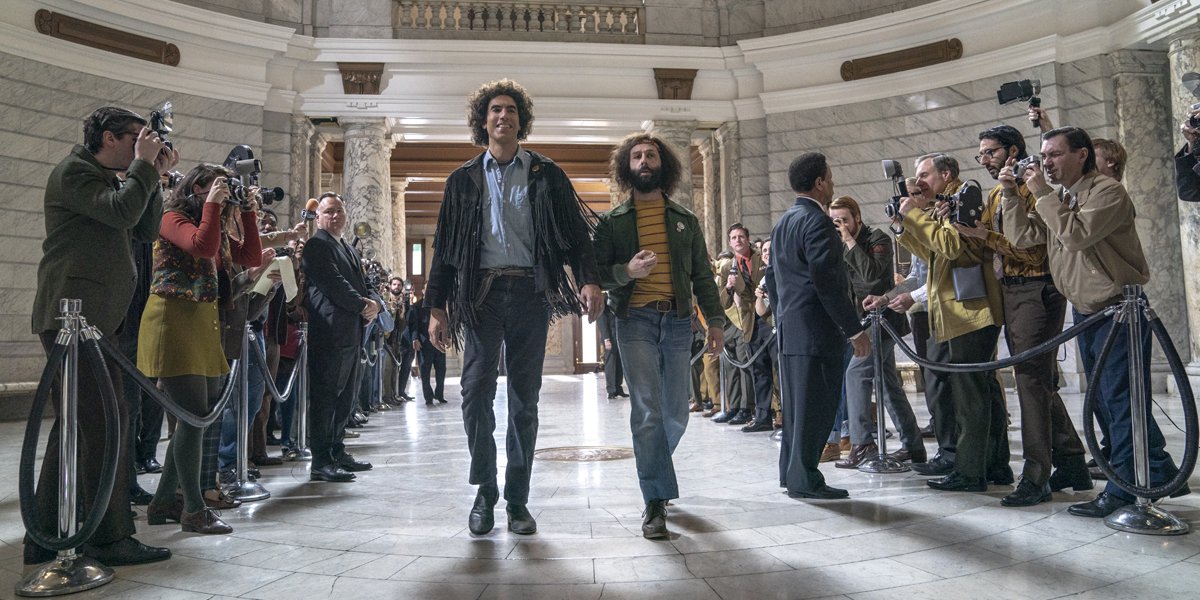
What Happened To The Chicago 7 And Bobby Seale After The Trial
As noted at the end of the film, five of the seven defendants in the landmark case were sentenced to five years in prison by Judge Julius Hoffman, but, as teased earlier in the film, that sentence wasn't permanent. After the verdict was reversed by the Seventh Circuit Court of Appeals, a new trial was ordered, but the case was never actually retried – allowing all the members of the Chicago 7 to walk away free. As for their futures individually…

Tom Hayden
In the years after the trial, Tom Hayden only became more involved in politics, and launched multiple campaigns for positions including senator and governor of California. He spent 18 years serving in both the California State Assembly and State Senate, and he was a prolific writer of political works. He passed away in October 2016.

Rennie Davis
Tom Hayden and Rennie Davis went their separate ways for the most part following the trial of the Chicago 7, with the latter spending the early 1970s following Guru Maharaj Ji as a member of the Divine Light Mission. Following the disbandment of the organization in the early 1980s, Davis became a venture capitalist with a focus on emerging technologies.

David Dellinger
David Dellinger continued participating in pacifistic activist work for the rest of his life, notably taking part in events such as a sit-in at the 1996 Democratic Convention (which was held in Chicago) and a march from Vermont to Quebec City to protest the creation of a free trade zone. He died at the age of 88 in 2004.

Jerry Rubin
Like Rennie Davis, Jerry Rubin also became a part of the business world in the years following the trial depicted in the film. With the reported aim of bringing social consciousness to the industry, he became a stockbroker with John Muir & Co in the 1980s, and later became involved in health food-related multi-level marketing. In 1994 he was struck by a car while living in Los Angeles, and while he initially survived the collision he died of a heart attack two weeks later in the hospital.

Abbie Hoffman
Of the members of the Chicago 7, Abbie Hoffman sadly had the shortest life – though he certainly lived loudly. He famously interrupted the performance by The Who at Woodstock in 1969, taking to the stage to protest the jailing of White Panther Party co-founder John Sinclair, and in the mid-1980s found himself in court once again, charged with trespassing after protesting CIA recruitment on the University of Massachusetts - Amherst campus (he was ultimately acquitted). He published a book titled “Steal This Book” in 1971. In 1989, at the age of 52, he committed suicide.

Bobby Seale
Following his separation from the trial of the Chicago 7, Bobby Seale’s legal issues didn’t entirely go away, as he was still a defendant in a murder trial in Connecticut, but he was later ruled innocent. His activist work as a co-founder of the Black Panther Party has continued in the decades since the trial, and he has written multiple books, including an autobiography, titled A Lonely Rage.
Aaron Sorkin’s The Trial Of The Chicago 7 is now available exclusively on Netflix, and stay tuned for more of our coverage of the film here on CinemaBlend.

Eric Eisenberg is the Assistant Managing Editor at CinemaBlend. After graduating Boston University and earning a bachelor’s degree in journalism, he took a part-time job as a staff writer for CinemaBlend, and after six months was offered the opportunity to move to Los Angeles and take on a newly created West Coast Editor position. Over a decade later, he's continuing to advance his interests and expertise. In addition to conducting filmmaker interviews and contributing to the news and feature content of the site, Eric also oversees the Movie Reviews section, writes the the weekend box office report (published Sundays), and is the site's resident Stephen King expert. He has two King-related columns.
